Karl Jaspers, nel suo scritto La bomba atomica e il destino dell’uomo (1957), affronta una delle questioni più drammatiche della modernità: il fatto che l’umanità abbia raggiunto un punto critico della sua storia in cui possiede la capacità di autodistruggersi. Questa consapevolezza non può essere evitata né minimizzata, perché rappresenta una condizione strutturale della nostra epoca. L’avanzamento tecnologico, in particolare con la creazione di armi nucleari e altre forme di distruzione di massa, ha portato l’uomo a un bivio esistenziale: da un lato, il rischio della rovina totale, dall’altro, la possibilità di costruire un nuovo ordine fondato sulla responsabilità e sulla pace.
Per Jaspers, la capacità di distruggere se stessi non è solo un problema tecnico o politico, ma una questione profondamente filosofica ed etica. Il progresso scientifico ha dato all’uomo un potere senza precedenti, ma questo potere non è stato accompagnato da un corrispondente progresso morale. L’uomo moderno ha sviluppato strumenti capaci di annientarlo, ma non ha ancora elaborato una coscienza universale sufficientemente forte da impedirne l’uso distruttivo. Questo paradosso è il cuore del problema: la sopravvivenza dell’umanità non dipende più solo dalle condizioni naturali o dalle guerre tradizionali, ma dalla capacità dell’uomo di governare se stesso e le proprie creazioni tecnologiche.
Jaspers sottolinea che non è più possibile tornare indietro. L’umanità non può annullare il fatto di essere arrivata a questo punto; l’unica possibilità è riconoscere questa condizione e affrontarla con lucidità. Se l’uomo continua a muoversi secondo logiche di sopraffazione, rivalità e violenza, la distruzione diventa una possibilità sempre più concreta. Se invece sceglie la via della responsabilità, può costruire un nuovo equilibrio globale fondato sulla consapevolezza del rischio e sulla necessità di evitarlo.
Per Jaspers, la violenza totale rappresenta la principale minaccia per il destino dell’uomo. La guerra non è più solo un conflitto tra nazioni o eserciti, ma una potenziale autodistruzione della civiltà intera. L’era della guerra nucleare ha cambiato radicalmente il concetto stesso di conflitto: non esiste più una “vittoria” possibile, perché la distruzione su larga scala coinvolgerebbe tutti, vincitori e vinti.
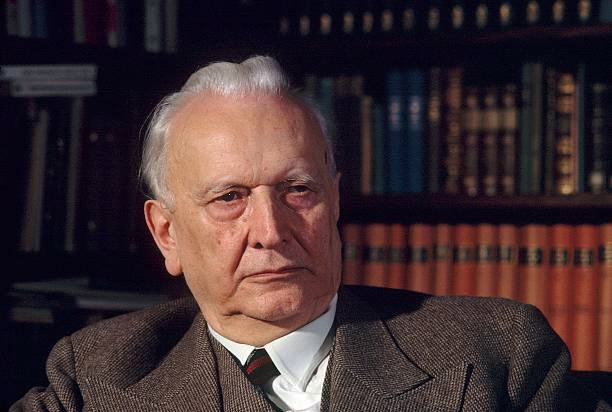
Secondo il filosofo tedesco, la condizione per evitare la rovina dell’umanità è proprio l’annullamento della violenza totale, ossia il rifiuto della guerra come strumento di risoluzione delle dispute. Questo non significa semplicemente l’abolizione formale dei conflitti, ma una trasformazione più profonda: un cambio di mentalità che porti a un nuovo modello di convivenza basato sul dialogo, sulla comprensione reciproca e sulla cooperazione. Jaspers avverte che l’uomo deve sviluppare una nuova etica globale, fondata sulla consapevolezza che la sopravvivenza collettiva dipende dalle scelte di ogni individuo e di ogni società. L’interconnessione del mondo moderno impone una responsabilità condivisa: nessuna nazione può più agire come se fosse indipendente dalle altre, perché le conseguenze delle sue scelte si ripercuotono su tutta l’umanità.
Un altro punto centrale del pensiero di Jaspers riguarda il ruolo della libertà e della responsabilità. Egli ritiene che la libertà individuale sia un valore fondamentale, ma deve essere accompagnata da una profonda responsabilità etica. Non basta essere liberi di agire: bisogna anche saper valutare le conseguenze delle proprie azioni. In un mondo in cui l’uomo ha il potere di distruggere se stesso, l’uso responsabile della libertà diventa una questione di vita o di morte. Jaspers vede nella filosofia e nella cultura strumenti essenziali per sviluppare questa consapevolezza. Solo attraverso il pensiero critico, il dialogo aperto e una riflessione profonda sul senso della nostra esistenza possiamo sperare di evitare la catastrofe. L’uomo deve imparare a riconoscere la propria vulnerabilità e a costruire un ordine sociale basato su valori condivisi, piuttosto che sulla paura e sulla coercizione.
Il messaggio di Jaspers è chiaro: l’umanità è di fronte a una sfida senza precedenti e la sua sopravvivenza dipende dalla capacità di superare la logica della distruzione reciproca. Il futuro non è determinato, ma aperto alle scelte che l’uomo farà. Solo annullando la violenza totale e sviluppando una coscienza etica e filosofica più elevata diventa possibile un futuro di pace e di progresso.
Il destino dell’umanità, quindi, non è scritto in modo inevitabile: dipende dalla volontà dell’uomo di comprendere il rischio che corre e di agire per evitarlo. Questo richiede un cambiamento profondo nel modo di pensare, di governare e di relazionarsi con gli altri. La filosofia di Jaspers è dunque un appello alla responsabilità collettiva e alla necessità di un nuovo umanesimo capace di guidare l’uomo verso un futuro che non sia segnato dall’autodistruzione, ma dalla realizzazione del suo potenziale più alto.

 Querela Pacis, o Il Lamento della Pace, è un’opera di Erasmo da Rotterdam, composta nel 1517. Il celebre umanista olandese, una delle figure più autorevoli del Rinascimento europeo, concepì questo testo come un appello accorato alla pace, contrapponendosi alla violenza e alle guerre che dilaniavano il continente, criticando lucidamente e appassionatamente l’assurdità della guerra.
Querela Pacis, o Il Lamento della Pace, è un’opera di Erasmo da Rotterdam, composta nel 1517. Il celebre umanista olandese, una delle figure più autorevoli del Rinascimento europeo, concepì questo testo come un appello accorato alla pace, contrapponendosi alla violenza e alle guerre che dilaniavano il continente, criticando lucidamente e appassionatamente l’assurdità della guerra. 
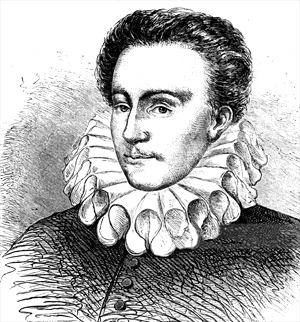
 Il Discorso sull’origine e i fondamenti della diseguaglianza tra gli uomini, pubblicato nel 1755 da Jean-Jacques Rousseau, costituisce, senza dubbio, uno dei testi più significativi della filosofia politica del XVIII secolo. Con quest’opera, Rousseau rispose a un concorso indetto dall’Accademia di Digione, che poneva la seguente domanda: “Qual è l’origine della disuguaglianza tra gli uomini, ed è essa autorizzata dalla legge naturale?”. Il filosofo ginevrino non si limitò a replicare in maniera diretta, ma costruì una riflessione ampia e articolata sulle condizioni originarie dell’uomo e sul processo storico che ha portato alla formazione delle società moderne, segnate da profonde ingiustizie.
Il Discorso sull’origine e i fondamenti della diseguaglianza tra gli uomini, pubblicato nel 1755 da Jean-Jacques Rousseau, costituisce, senza dubbio, uno dei testi più significativi della filosofia politica del XVIII secolo. Con quest’opera, Rousseau rispose a un concorso indetto dall’Accademia di Digione, che poneva la seguente domanda: “Qual è l’origine della disuguaglianza tra gli uomini, ed è essa autorizzata dalla legge naturale?”. Il filosofo ginevrino non si limitò a replicare in maniera diretta, ma costruì una riflessione ampia e articolata sulle condizioni originarie dell’uomo e sul processo storico che ha portato alla formazione delle società moderne, segnate da profonde ingiustizie.

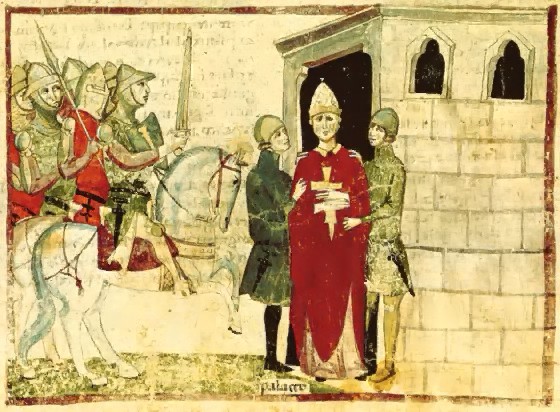



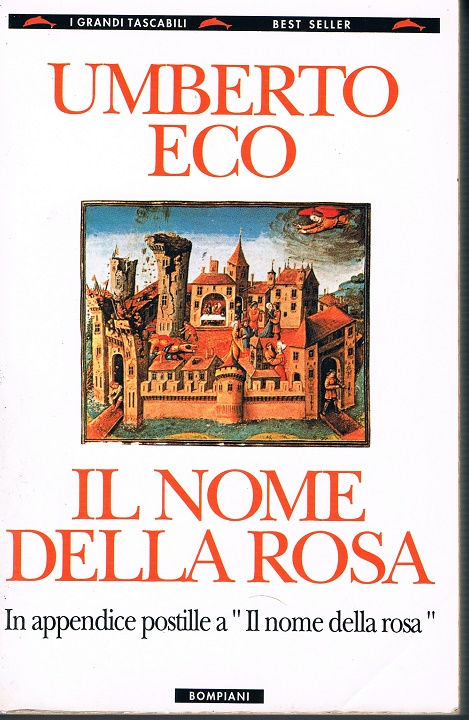


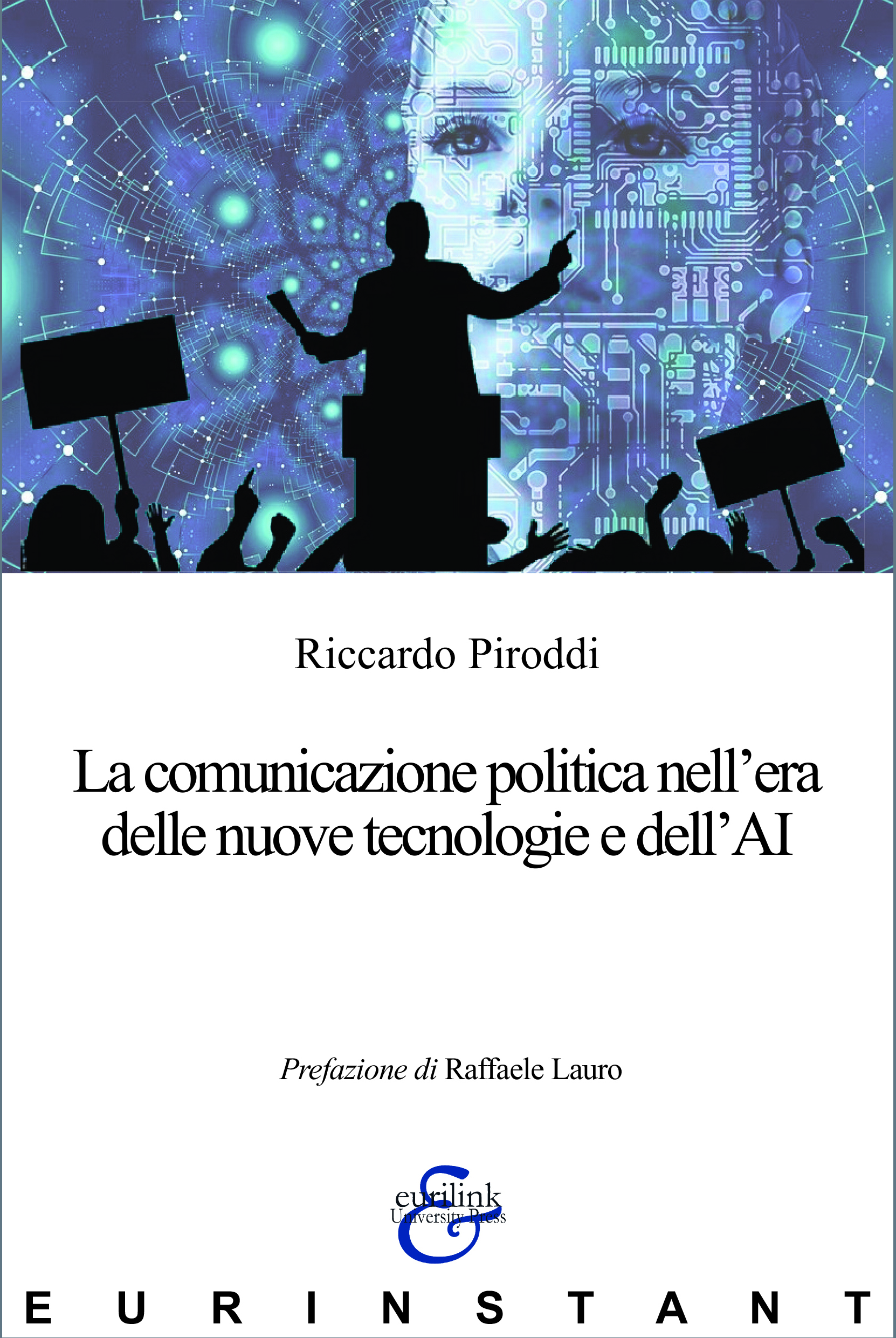
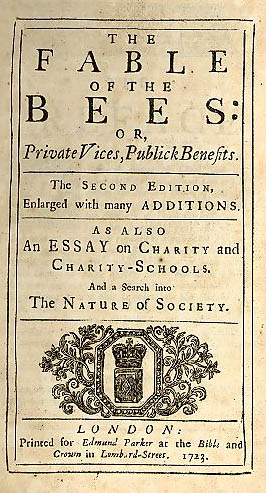 Bernard de Mandeville (1670-1733), medico e filosofo di origini olandesi, naturalizzato inglese, pubblicò la sua opera più celebre, La favola delle api: vizi privati, pubbliche virtù (The Fable of the Bees: or, Private Vices, Publick Benefits), nel 1714. Questo poemetto satirico è un testo provocatorio e fondamentale per comprendere le radici del pensiero economico moderno e le tensioni etiche della società capitalistica emergente.
Bernard de Mandeville (1670-1733), medico e filosofo di origini olandesi, naturalizzato inglese, pubblicò la sua opera più celebre, La favola delle api: vizi privati, pubbliche virtù (The Fable of the Bees: or, Private Vices, Publick Benefits), nel 1714. Questo poemetto satirico è un testo provocatorio e fondamentale per comprendere le radici del pensiero economico moderno e le tensioni etiche della società capitalistica emergente.